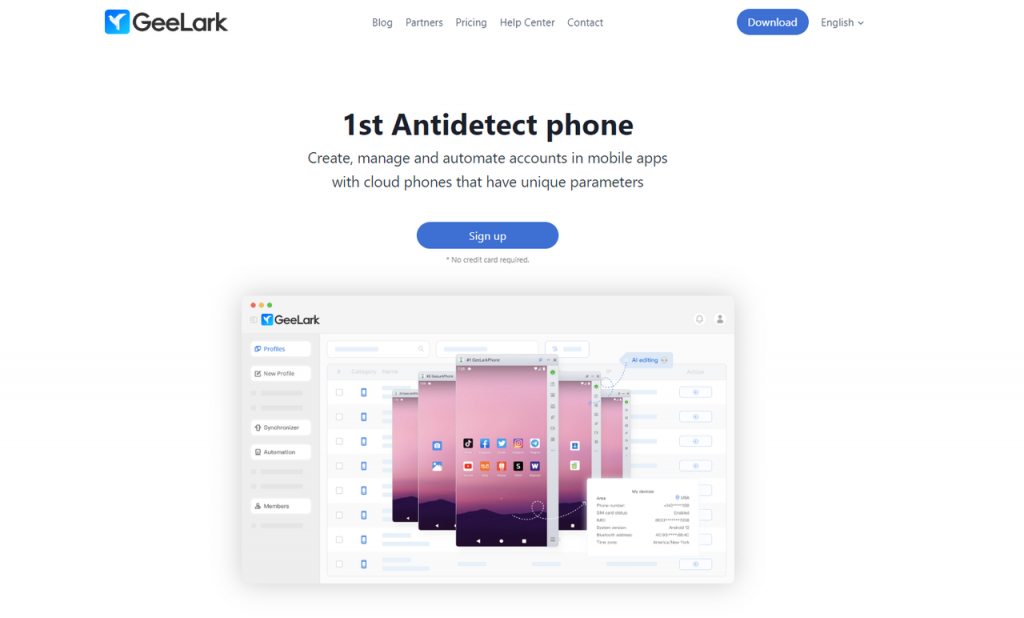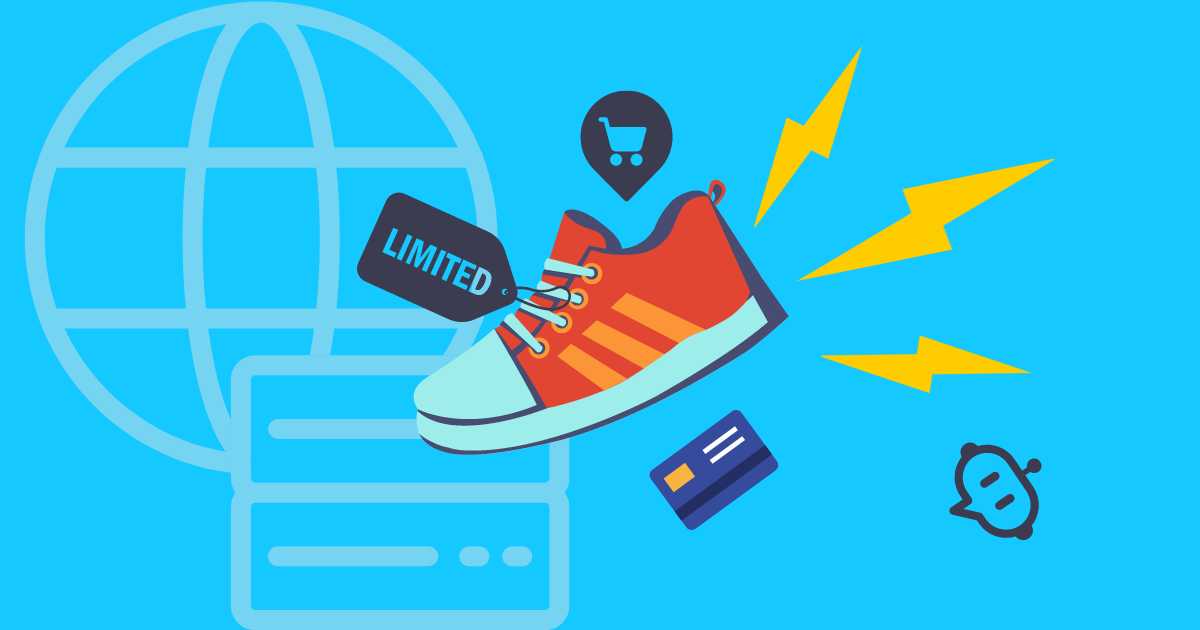What Are Sneaker Proxies? Your Guide to Copping Sneakers
Sneakerheads and resellers know the deal — those limited edition kicks from Yeezy, Air Jordan, and Adidas are straight fire. But good luck copping them through regular stores. Trying to buy in-person? You might as well pitch a tent outside the shop and keep your fingers crossed.
So, is online shopping a better alternative?
If you’re aiming to purchase those hard-to-get, limited-edition sneakers online, sneaker proxies are a game changer. These online sneaker stores implement strict anti-spam systems and usually limit purchases to one pair per account. To increase their odds, many resellers adopt advanced tech like proxies and bots. Using such tools lets them create multiple accounts and buy in bulk. This high-tech approach to sneaker buying has turned the competition into a challenge, especially for newcomers trying to enter the reselling market.
This guide dives into sneaker proxies — explaining their purpose, importance, and how to select the best ones for your sneaker-buying success.
What Are Sneaker Proxies?
A proxy server acts as a middleman between a user and a website, hiding the user’s real IP address. By doing so, it enables people to create multiple accounts on a site without detection, as each account appears to originate from a different location.
Websites often rely on IP addresses to identify potential spam since each internet device has its own unique IP. By masking your IP, proxies allow you to bypass restrictions and create multiple accounts without raising red flags.
Sneaker proxies are optimized specifically for sneaker shopping websites. While not every sneaker site requires specialized proxies, those with strict security protocols do.
For instance, platforms like Nike, Adidas, and Supreme employ robust systems to detect and block regular proxies. Reliable proxies become essential when navigating these sites. On the other hand, less secure sneaker sites may work fine with standard proxies.
The true value of sneaker proxies lies in their ability to bypass regional restrictions, allowing users to participate in releases limited to specific geographical areas. By masking your actual IP address, these proxies let you create the multiple accounts needed for higher chances of success during high-demand releases. They also permit users to send several requests to retailer websites simultaneously, effectively boosting their odds of securing coveted sneakers.
What Do Sneaker Proxies Do?
Sneaker proxies function alongside sneaker bots.
Sneaker bots are automated tools built to streamline the buying process. With bots, purchases are completed much faster than manual attempts, enabling users to buy multiple pairs during a single release.
Some bots are site-specific, such as Nike bots and Supreme bots, while others are all-in-one (AIO) bots that support purchases across multiple websites. Like limited-edition sneakers, popular bots can be hard to obtain and might need to be bought through aftermarket sources.
Proxies are essential for bot users managing multiple accounts. Bots require proxies because they mask your real IP address and replace it with distinct ones, preventing websites from identifying all the accounts as originating from the same computer.
Proxies provide the ability to switch between different IP addresses. This feature makes it harder for websites to detect and block bot activity. Furthermore, proxies can even make it appear that you’re browsing from specific geographical areas, giving you access to region-limited sneaker drops. By employing multiple proxies, you can set up numerous accounts and submit numerous purchase requests—significantly increasing your chances of success.
Types of Sneaker Proxies for Main Copping Sites
Two primary types of sneaker proxies exist: residential and datacenter proxies. Residential proxies simulate regular home internet connections, making them harder to detect. Datacenter proxies deliver faster speeds but are more likely to be flagged and blocked by certain sneaker websites.
The following provides a breakdown of main sneaker sites and the proxies that work best with each:
Demandware (Adidas and Yeezy Supply)
Adidas and Yeezy Supply use the Demandware platform. These sites frequently experience intense bot traffic, requiring top-tier residential proxies sourced from various internet providers. Recommended providers include Bright Data, SimplyNode, and Proxy-Cheap.
Footsites
This category encompasses Footlocker, EastBay, ChampsSports, and Footaction. These sites are popular among bot users. While datacenter proxies might work here, residential proxies are often recommended for better results.
Shopify
Several sneaker stores, including Kith, Bape, and JimmyJazz, utilize Shopify. Bots tend to work smoothly on Shopify, but the high competition warrants the use of efficient proxies. Most Shopify stores perform well with datacenter proxies like Proxy-Seller, Proxy-IPv4, and Proxy-Sale. However, residential proxies are best for stores like YeezySupply.
Mesh
Sites such as JDSports, Footpatrol, and The Hip Store operate on the Mesh platform, mainly catering to the EU market. Residential proxies sourced from European regions are ideal for these platforms.
Nike
Nike’s website and SNKRS app pose significant challenges for bots. Residential proxies aligned with your shipping region offer the best chances of success. Notable proxy providers include Smartproxy, Soax, and IPRoyal.
Supreme
Supreme’s website deploys stringent anti-bot measures. High-quality residential proxies remain the most reliable option for purchases there. Providers such as Smartproxy and Bright Data are recommended.
AIO (All-In-One) Bot Proxies
AIO bots allow users to shop across multiple websites. Specialized proxies for these bots enhance performance by offering a large selection of IP addresses—often residential or dedicated options. These proxies work well on Shopify and Footsites, and their success varies for other platforms like Adidas and Supreme.
How to Choose the Best Sneaker Proxies
Selecting the right sneaker proxy involves evaluating several factors. Below are key considerations:
Location
Proximity: Opt for proxies located near your physical region to reduce latency and improve connectivity.
Target Site Region: Align your proxy’s location with the site’s geographic focus. For example, a UK-based proxy suits Nike UK drops well.
Ping
Competitive Ping: Choose proxies with low ping (less than 100ms) for faster connections during drops.
Location Advantage: Minimize physical distance between proxy servers and your device.
CDN Awareness
Understand CDN Use: Many retailers use Content Delivery Networks (CDNs). Select proxies near these CDN servers to enhance performance.
Proxy Compatibility: Ensure compatibility between desired proxies and your sneaker bot’s supported protocols (e.g., HTTP(S), SOCKS).
Extra Features
Consider proxies offering advanced features like dynamic IP management or randomization for enhanced anonymity.
Seeking Chances on Mobile Sneaker Copping
Mobile vs. Computer Copping
Desktop setups require specific hardware and tied workspaces, limiting mobility. On the contrary, mobile devices offer portability, allowing users to cop sneakers from any location while managing multiple tasks.
Mobile devices also simplify checkout using saved card details, biometric authentication, or payment services like Apple Pay and Google Pay—providing speed and security.
Advanced Mobile Copping Strategies
Most major sneaker brands have dedicated apps for mobile shopping. Regular app users may gain higher trust from retailers, improving chances during raffles. Advanced methods like mobile sneaker bots and copping apps can amplify success. Cloud phones, such as GeeLark, further optimize mobile copping by allowing users to run multiple sessions simultaneously.

FAQs
How many proxies do I need for sneaker copping?
Typically, 10–20 proxies per account provide a good balance. For high-demand drops, scaling up to 30–50 proxies can improve your odds.
How much do good sneaker proxies cost?
Residential proxies range from $1–$20/GB, while datacenter proxies are more affordable at $0.50–$5 per proxy. Bulk discounts vary by provider.
Do I need different proxies for different sneaker sites?
Yes, site-specific proxies increase success by addressing unique anti-bot systems. Customizing for each platform is highly recommended.
Are free proxies suitable for sneaker copping?
No, free proxies are often unreliable and susceptible to detection. Paid proxies ensure both performance and security.
Can I use the same proxies for multiple sneaker drops?
Fresh proxies are recommended for major drops. Reused proxies might be flagged, reducing their effectiveness. Providers offering rotation services can help mitigate this.











